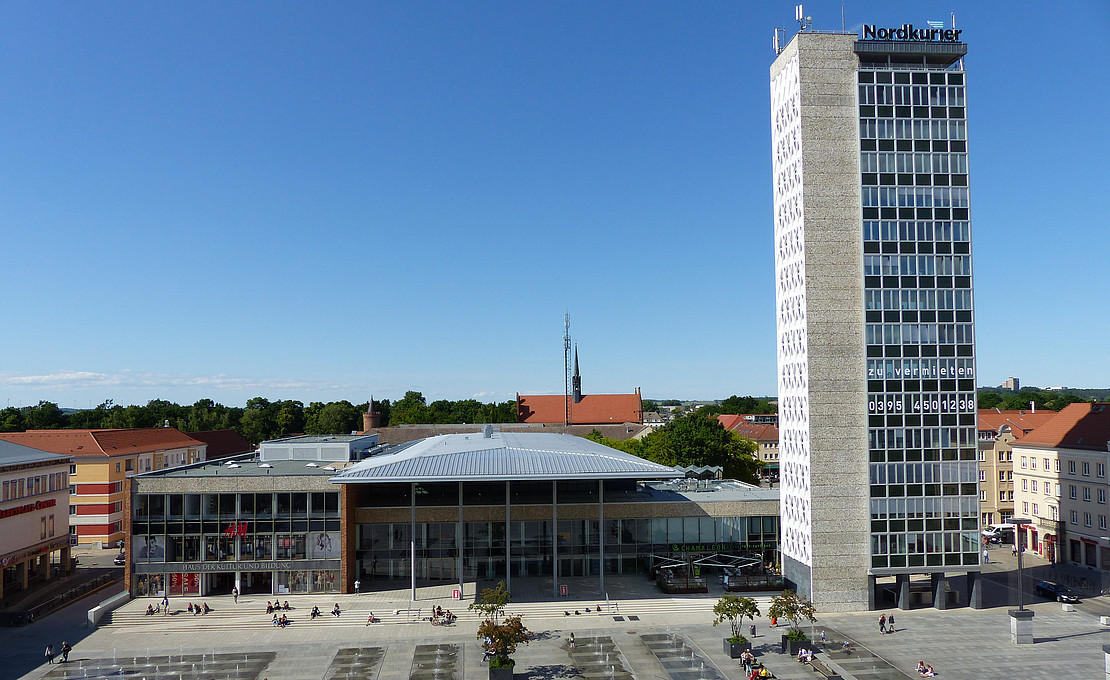This page contains automatically translated content.
Online project makes female architects in socialism visible
 Image: B. Karl
Image: B. KarlThe idea is to create an online repository of women architects who worked in socialist countries. "Put simply, it is a kind of database. However, our idea goes beyond a mere collection of short descriptions. Rather, we want to be able to compile a wide range of information: Encyclopedia entries, essays, photos, plans, drawings, publication scans and much more," explains Prof. Dr. Alla Vronskaya from the Department of History and Theory of Architecture at the University of Kassel and head of the project. "An important aspect is the section "Architects in their own words". Women architects, designers and planners will have their say here in person. The collection includes conversations between contemporary witnesses and researchers from different countries."
The spatial focus of this project is defined more by its economic than political framework. Meaning, in addition to Warsaw Pact members, other state socialist countries, such as China and Yugoslavia, will be covered. In addition to gender, other reasons for the lack of perception of women architects, such as ethnicity or region of origin, are also considered.
Nothing new in the East?
One problem for the visibility of female and male architects from socialist states is the Western view. "During the Cold War, the widespread assumption among art historians was that there was no architecture in the East. This was partly due to ideological stereotypes, and partly due to the patriarchal modern idea of architecture. It is associated with the mythical figure of the genius who freely creates outstanding masterpieces, usually individual villas. Collective and often anonymous architectural planning within huge state offices in socialist countries, mostly concerned with standardized constructions, seemed infinitely far from this ideal," explains Prof. Vronskaya.
All are equal, but some are more equal
Another problem is that architecture is still dominated by men. More than half of today's architecture graduates andnnen are female. However, in the German labor market, they make up only 30% of those working in architecture. In the countries that embraced socialism, the situation was not much better: although there were significantly more women working as architects, they were rarely able to reach leadership positions and obtain prestigious commissions. True, one achievement of the socialist revolution was equal rights for men and women: but one could not speak of equal treatment. "One consequence was the double burden on women. In addition to her own job, raising children usually remained her responsibility. Traditional role models also persisted. Women were expected to have offspring at an early age, and the goal of a major career was viewed rather negatively. Not to mention that they were not trusted with leadership positions because of their gender."
The project is funded by the Hessian Ministry of Science and Art with 63,000€ and has a duration of 18 months. In addition to the project leader Prof. Dr. Alla Vronskaya, the team includes Prof. Dr. Tijana Vujosevic (external collaboration, University of British Columbia), Constanze Kummer (research assistant), Benjamin Eckel (research assistant).
Contact:
Prof. Dr. Alla Vronskaya
University of Kassel
Department 06 - Architecture, Urban Planning and Landscape Planning
Department of History and Theory of Architecture
Tel. +49 561 804-3398
Email: vronskaya[at]uni-kassel[dot]de
Sebastian Mense
University of Kassel
Communication, Press and Public Relations
Tel.: +49 561 804-1961
E-Mail: presse[at]uni-kassel[dot]de
& nbsp;